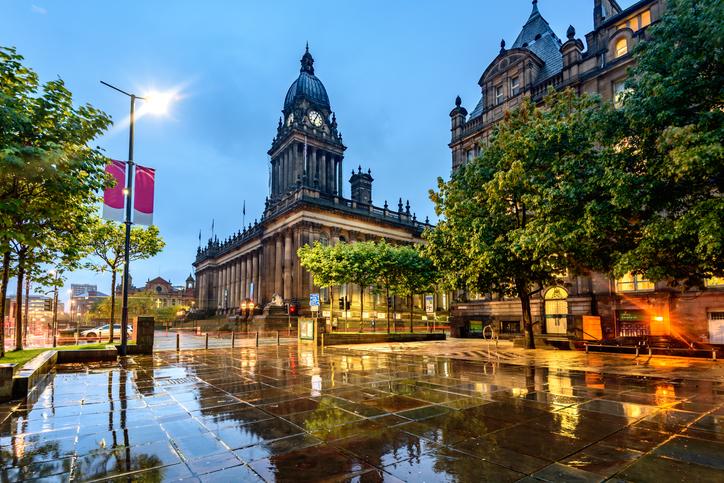All libraries, museums and galleries in Leeds at risk of closure as local councils count cost of coronavirus
Council bosses in Leeds say, without more money from government, ‘we would have to take very Draconian measures’

Your support helps us to tell the story
From reproductive rights to climate change to Big Tech, The Independent is on the ground when the story is developing. Whether it's investigating the financials of Elon Musk's pro-Trump PAC or producing our latest documentary, 'The A Word', which shines a light on the American women fighting for reproductive rights, we know how important it is to parse out the facts from the messaging.
At such a critical moment in US history, we need reporters on the ground. Your donation allows us to keep sending journalists to speak to both sides of the story.
The Independent is trusted by Americans across the entire political spectrum. And unlike many other quality news outlets, we choose not to lock Americans out of our reporting and analysis with paywalls. We believe quality journalism should be available to everyone, paid for by those who can afford it.
Your support makes all the difference.Every library, museum and gallery could be closed in one of England’s biggest cities as local authorities across the country struggle to balance the books in the wake of the coronavirus crisis.
Leeds City Council has also said it may have to slash more than 400 jobs as the sheer extent of the cost of Covid-19 on regional government starts to emerge.
In a brutally candid virtual press conference, Tom Riordan, the West Yorkshire council’s chief executive, admitted the situation was “as severe as it gets”.
He told reporters: “If we anticipate that we can’t balance our budget, we have to take steps to pare our spending right back to the things we just have a legal duty to provide. That would rule out many of the services we provide today, for example the cultural institutions that we fund in the city are non-statutory.
“We would have to take very Draconian measures.”
For context, it was shown that the council’s overspend this year stands at £197.6m. It’s total budget is £530m.
While councils have a legal duty to provide library services, it is widely thought this could be pared back to a skeleton, online-lending resource without breaking that obligation.
The revelation of such possible cuts is the starkest warning yet of the economic devastation being faced by authorities across the UK as a result of the ongoing pandemic.
Officials have found themselves having to ramp up spending on hugely expanded social care provisions – such as housing all rough sleepers – while simultaneously losing vast chunks of income from tax, parking, leisure fees and public transport.
Luton Borough Council has seen a projected £33m income from its airport disappear. Without help, its leader has said, it will have to cut 14 per cent of all jobs.
“There is already so much misery in the town and behind these stark figures are individuals with livelihoods and families to care for,” said Hazel Simmons. “Throughout this crisis council staff have shown unbelievable levels of dedication and sacrifice, yet now, through no fault of their own, a number of them are at risk of losing their jobs. It is an extremely bitter pill to swallow.”
While the government has provided some £3.2bn in emergency funding to hard-pressed authorities, the Local Government Association has said the amount is nowhere near enough. It estimates a further £6bn is needed if the country is not to see a wave of councils going bust.
Speaking earlier this month, Andy Burnham, the mayor of Greater Manchester, said that only support from Whitehall could stop the “2020s being as bad as the 1980s”.
A spokesperson for the Ministry of Housing, Communities and Local Government said it had provided more than £27bn to support local councils, businesses and communities during the coronavirus pandemic.
This included £600m to help reduce the infection rate in care homes and £300m to support track and trace, they added.
“We will continue to work closely with councils as they support their communities through this national emergency and we are working on a comprehensive plan to ensure councils’ financial sustainability over the coming year,” the spokesperson said.
Join our commenting forum
Join thought-provoking conversations, follow other Independent readers and see their replies
Comments